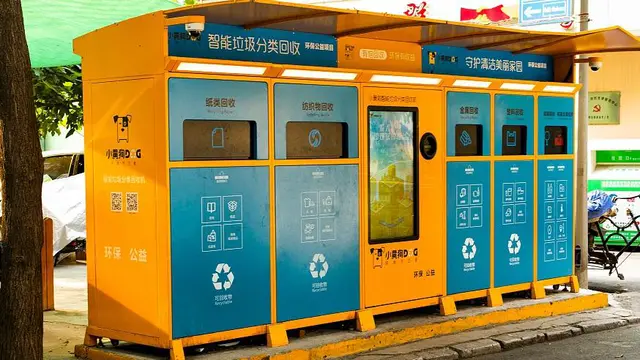On Jan. 13, an employee with the official Hawai‘i state Emergency Management Agency mistakenly sent out a ballistic missile threat across the islands, leaving residents and visitors fearful and traumatized. The reaction that a potential nuclear strike could hit American soil seems incredible, as the likelihood is certainly enormously remote, but the escalated rhetoric between the presidents of the United States and Democratic People’s Republic of Korea (DPRK) in 2017 made such apprehensions appear much more reasonable.
North Korea's Jang Choo Pak (L) and South Korea's Eun-Soon Chung carry a flag bearing the unification symbol of the Korean peninsula during the opening ceremony of the Sydney 2000 Olympic Games, in Sydney, Australia on Sept. 15, 2000.
Thankfully, 2018 has enjoyed a brighter start in actual bilateral relations between the two Koreas, after DPRK President Kim Jong-un signaled a willingness to participate in the PyeongChang Winter Olympics to be held in the Republic of Korea (ROK) on Feb. 9-25.
ROK President Moon Jae-in seized upon this gesture of goodwill and both governments began working-level talks on Jan. 15 to arrange the role for the DPRK in the Olympics, including possible appearances by an art group and orchestra at the opening and closing ceremonies, allowance for DPRK athletes to participate despite missing deadlines, and perhaps even inclusion of a joint Korean women’s hockey team.
After two years without dialogue, these meetings at the Tong-Il pavilion on the northern side of the demilitarized zone at the truce village of Panmunjom offer significant hope for a return to broader talks on denuclearization of the Korean peninsula. Confidence-building measures and trust-building exercises such as these can enhance goodwill and provide impetus and momentum for more substantive talks on tougher issues.
While the Sunshine Policy of liberal predecessors such as Kim Dae-Jung and Roh Moo-hyun did not resolve the ongoing dispute on the peninsula, they present the most fruitful pathway to peace and stability in Northeast Asia, particularly when formalized through the six-party talks.
US Air Force B-1B bomber (L), South Korea and US fighter jets fly over the Korean Peninsula during the Vigilant air combat exercise (ACE) on Dec. 6, 2017 in Korean Peninsula, South Korea.
The DPRK is as isolated as it's been in
the more than two decades since the passing of Kim Il-Sung and collapse of Soviet support. The United Nations’ Security Council resolutions have placed greater restrictions on the DPRK, American pressure has been resolute, Chinese displeasure with DPRK behavior is apparent, and the ROK’s willingness to step away from confrontation have created ripe conditions for returning to dialogue and negotiation.
President Kim’s gesture reflects his awareness of his limited options and is a step in the right direction. The Olympics symbolize peace and harmony, and their emblem is a source of inspiration to people all over the world. If these current talks facilitate the participation of all Koreans in a show of athletic solidarity, and the talks focus on the logistics of transportation routes to the Games, we can be cautiously optimistic about improved ties on the peninsula.
South Korea's missile system firing Hyunmu-2 missiles into the East Sea during a missile drill aimed to counter North Korea's missile test on Nov. 29, 2017 in Seoul, South Korea.
Twenty nations met in Vancouver, Canada to reaffirm sanctions toward the DPRK, but President Trump’s team may want to pause and see the results of these next several weeks before pursuing any escalating mechanisms. Rewards for the DPRK can wait, but idle threats over preemptive strikes should be silenced. False alarms remind us of the high stakes involved in the tightrope walk needed when discussing the use of force, and the risk of inflammatory rhetoric that may back one party into a corner.
Tit-for-tat military strikes are a dead end, while face-to-face meetings to negotiate over competing interests in a managed diplomatic pathway may be a long and winding road, but they at least offer the chance to reach a mutually agreeable destination. Of course, wise observers have reasons to be skeptical of DPRK missives and motivations, but this security situation is all about the process, and it appears dialogue is resuming. Let the games begin!
(CGTN)
 简体中文
简体中文

